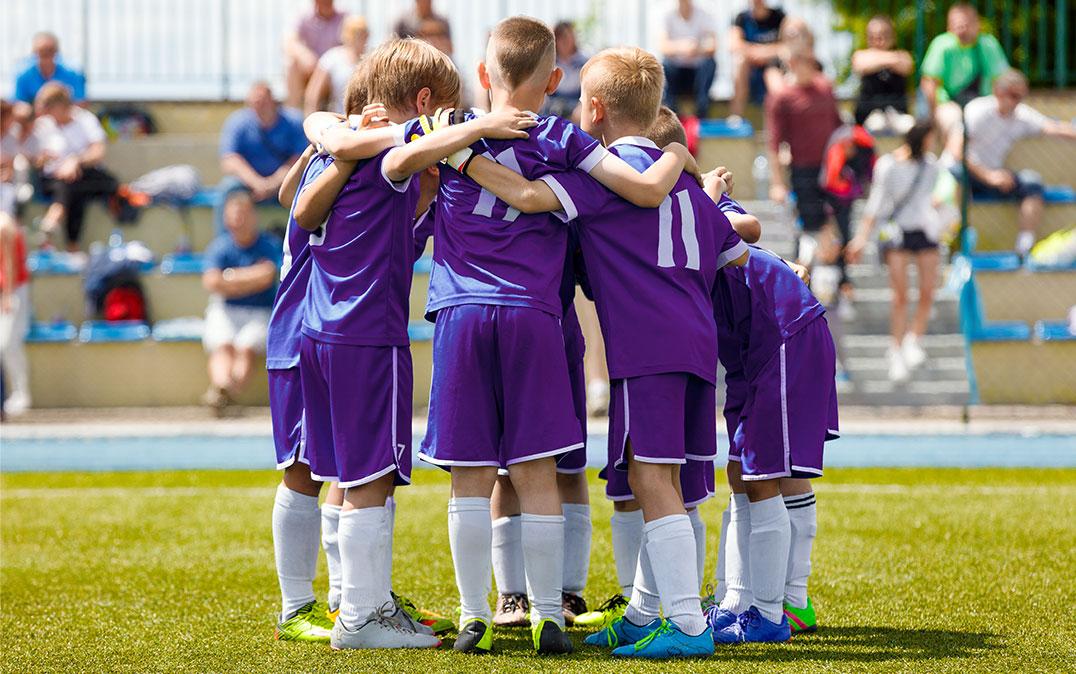Research News
Footballers Unite: Teammate Conflicts Might Help You Win

Image by matimix/Shutterstock
Researchers from the University of Tsukuba find that highly competitive young soccer players are more adept than low-level players at dealing with teammate conflicts
Tsukuba, Japan—Interpersonal relationships among team members are an important part of team sports. However, conflicts between teammates are inevitable and can hinder team performance. New research from Japan shows this may not always be so: despite more relationship stressors among elite sports teams that compete at a high level, they may be better equipped at dealing with them than less competitive teams.
In a study published this month in Football Science, researchers from the University of Tsukuba revealed that although premier league-level high school soccer players encounter more relationship stressors than do low-level club players, they are more adept at solving problems in a problem-focused and constructive manner. This helps them maintain high collective efficacy, and in turn, a high level of performance.
Conflicts among team members are part and parcel of team sports. However, the inability to resolve such conflicts effectively can negatively impact collective efficacy, which is the shared belief that the team as a group possesses the ability to achieve victory. Consequently, this can lead to poor team performance. Interestingly, some athletes are not negatively affected by such relationship stressors; in fact, there may be positive effects, such as personal growth. A better understanding of the psychological response to relationship stressors could be valuable for improving team confidence and developing more effective support for young sports teams to enable them to perform at a high level.
In two soccer teams, one that plays at a high premier league-level of competition and the other at a low level of competition, researchers evaluated the degree of stress players felt toward their relationships with teammates, their sense of collective efficacy, their perception of their relationship stressors,their coping styles, and stress response. Significantly more relationship stressors were experienced by the high-level group than the low-level group. However, the high-level group also had a higher level of collective efficacy, perceived stressors as less challenging and more controllable, and were more positive-thinking and problem-focused when dealing with problems. "Athletes with a higher level of competition adopted problem-focused coping, in which they focused on solving the cause of the problem and worked constructively to solve the problem, such as devising solutions and making efforts to improve their relationship," says senior author Professor Masao Nakayama. In contrast, "low-level players adopted emotion-focused coping, in which they focused on controlling their emotions and tried to cope with stress by controlling their reactions to the stressor rather than the stressor itself." The team believes that the high-level team's exposure to more relationship stressors provided them with the momentum for solving problems together, which was reflected in their higher collective efficacy. This distinct approach to solving problems amongst team members may be what allows these teams to perform at such a high level.
"It is important for athletes to understand that they need to acquire and encourage skills to deal with problems flexibly depending on the situation," says Professor Nakayama. The team hopes that their findings will help promote psychological support for young athletes, help them to more effectively deal with teammate relationships, and ultimately enhance collective efficacy and team performance.
Original Paper
The article, "Characteristics of Psychological Stress Processes and Collective Efficacy in Response to Relationship Stressors among Young Soccer Players," was published in Football Science.
Correspondence
Professor NAKAYAMA Masao
Faculty of Health and Sport Sciences, University of Tsukuba
Related Link
Faculty of Health and Sport Sciences



